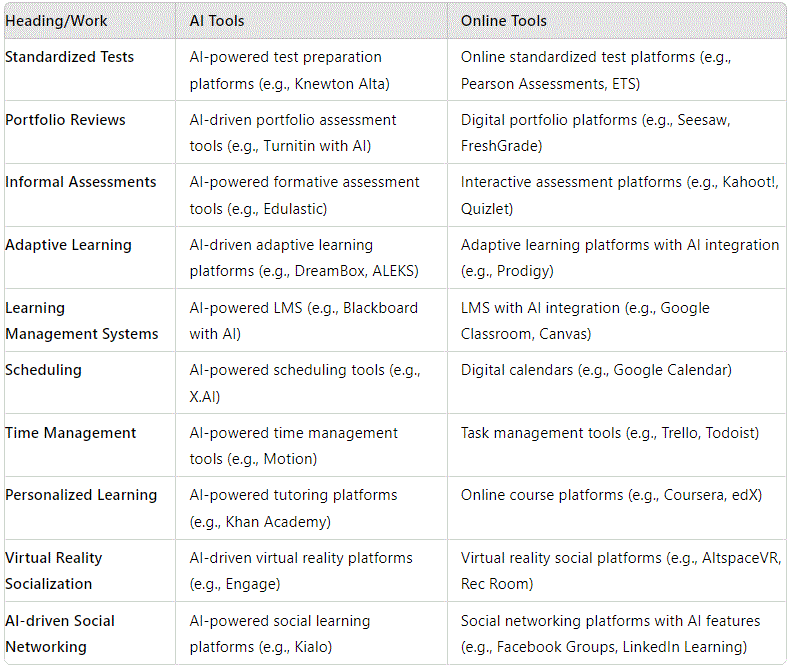The Comprehensive Guide to Homeschooling: Answering All Important Questions and Enhancing the Experience with AI Tools
1/1/20248 min read


Introduction to Homeschooling
Homeschooling is an educational approach where parents take on the role of educators, providing their children with a tailored learning experience at home. This method allows for a highly personalized curriculum that can cater to the individual needs, interests, and learning styles of each child. The history of homeschooling dates back to the early years of the United States, where formal schools were scarce, and families educated their children at home or in small community settings. Over time, as public education systems developed, homeschooling became less common but has seen a resurgence in recent decades due to various factors.
Parents might choose to homeschool their children for a multitude of reasons. One of the primary motivations is the flexibility it offers. Homeschooling allows families to create schedules that suit their lifestyles and to take advantage of learning opportunities outside the traditional classroom environment. Additionally, it enables parents to provide a curriculum that aligns with their educational philosophies, religious beliefs, or specific academic goals.
Personalized learning is another significant advantage of homeschooling. In a homeschool setting, education can be customized to match the pace and interests of the child, fostering a deeper understanding and a love of learning. This individualized approach can be particularly beneficial for children who may not thrive in a conventional school setting due to various factors such as learning differences, social challenges, or extraordinary talents.
Moreover, homeschooling often strengthens family bonds. As parents and children spend more time together, they have more opportunities to engage in meaningful conversations, share experiences, and build strong relationships. This family-centric approach can provide a supportive and nurturing environment that enhances the overall educational experience.
While homeschooling offers many benefits, it is essential to address common concerns and misconceptions. Some people worry about the socialization of homeschooled children, fearing they might miss out on interactions with peers. However, many homeschooling families participate in co-ops, extracurricular activities, and community groups, providing ample social opportunities. Another concern is the perceived lack of structure or rigor; however, many homeschool programs are well-organized and academically challenging.
As we delve deeper into this comprehensive guide, it is crucial to maintain a balanced perspective on homeschooling. By understanding its history, benefits, and addressing common concerns, parents can make informed decisions about whether homeschooling is the right choice for their family's educational journey.
Legal Considerations and Requirements
Homeschooling is governed by various legal considerations and requirements that can differ significantly by country and state. Understanding these regulations is crucial for parents to ensure compliance and provide a legitimate educational experience for their children. These legal aspects typically encompass compulsory attendance laws, required subjects, and assessment standards.
Compulsory attendance laws dictate the age range during which children must receive an education. This can vary, for instance, from ages 6 to 16 in one state, while another might extend it from 5 to 18. Parents must familiarize themselves with these laws to avoid legal complications. Additionally, certain jurisdictions may require parents to formally withdraw their children from public school systems to begin homeschooling.
Required subjects form another critical component of homeschooling regulations. These subjects often include core areas such as mathematics, language arts, science, and social studies, ensuring that homeschooled children receive a well-rounded education. Some regions also mandate instruction in specific topics like physical education or health, while allowing flexibility in others, such as arts or foreign languages.
Assessment standards are designed to gauge the educational progress of homeschooled students. These can range from standardized testing to portfolio assessments, and the frequency and type of assessment required can vary widely. Some areas may require annual testing, while others might only necessitate periodic evaluations. Adhering to these standards is essential to demonstrate that homeschooled students are meeting educational benchmarks.
Navigating these legal requirements can be complex, but numerous resources are available to assist parents. Organizations like the Home School Legal Defense Association (HSLDA) offer detailed guides and legal advice. Additionally, AI tools such as legal research assistants (e.g., ROSS Intelligence) can be invaluable in helping parents stay informed about the latest regulations and ensure ongoing compliance. These tools can swiftly analyze legal documents and provide updates on any changes in homeschooling laws, offering peace of mind and allowing parents to focus more on their children's education.
Curriculum Planning and Resources
Planning a homeschooling curriculum that suits the educational needs of your children can be a complex but rewarding task. A well-structured curriculum ensures that students receive a balanced and comprehensive education. Various educational philosophies and types of curricula are available to cater to diverse learning styles and preferences.
One popular option is the classical curriculum, which emphasizes the trivium - grammar, logic, and rhetoric. This traditional approach focuses on developing critical thinking and analytical skills through a structured and rigorous framework. Another option is the Montessori method, which promotes self-directed learning and hands-on activities to foster independence and curiosity. Unschooling, a more flexible approach, allows children to learn through life experiences, guided by their interests and natural curiosity.
Choosing the right curriculum involves understanding your child's learning style, interests, and educational goals. Numerous resources are available for purchasing or creating curricula tailored to individual needs. Websites like Homeschool Buyers Co-op and Rainbow Resource Center offer a wide range of materials and curriculum packages. Additionally, many educational publishers provide comprehensive homeschooling programs, including textbooks, workbooks, and lesson plans.
AI tools have emerged as valuable resources in enhancing the homeschooling experience. Intelligent tutoring systems, such as Khan Academy and Coursera, offer personalized learning experiences by adapting to the student's pace and level of understanding. These platforms provide interactive exercises, instructional videos, and progress tracking, allowing for a customized educational journey. AI-driven tools can supplement traditional materials, providing students with additional support and resources to master complex subjects.
Incorporating AI tools into your homeschooling curriculum can also help identify areas where a student may need extra assistance, enabling targeted interventions. By leveraging technology, parents can create a more dynamic and engaging learning environment that caters to their child's unique needs.
Daily Structure and Time Management
Creating an effective daily schedule is crucial for successful homeschooling. It provides a framework that balances academic work, extracurricular activities, breaks, and family time, ensuring that both students and parents can navigate their day with clarity and productivity.
One of the first steps in establishing a daily structure is setting a consistent start and end time for school activities. This helps children understand when it's time to focus on academics and when they can transition to other activities. Flexibility within this structure is essential to accommodate the unique needs and learning pace of each child. For instance, some students may benefit from shorter, more frequent breaks, while others may prefer longer periods of focused study followed by extended downtime.
Incorporating extracurricular activities into the daily schedule is another key aspect. These activities, which can range from sports and music lessons to coding clubs and art classes, provide a well-rounded education and help prevent burnout from academic work. It is important to ensure that these activities are balanced with academic responsibilities, allowing children to explore their interests without compromising their educational progress.
Family time should also be a priority in the daily schedule. Shared meals, reading sessions, and family outings can strengthen bonds and provide a supportive environment for learning. Additionally, including time for socialization with peers, whether through virtual meetups or community groups, is crucial for the social development of homeschooled children.
AI tools can significantly enhance time management and organization in homeschooling. Scheduling apps like Google Calendar, with AI integration, can help parents and students plan their day efficiently, set reminders for upcoming tasks, and adjust schedules as needed. Similarly, time management tools such as Trello and Todoist can assist in tracking assignments, setting goals, and maintaining a clear overview of tasks. These tools not only promote productivity but also teach children essential organizational skills that will benefit them in the long run.
Socialization and Extracurricular Activities
One of the primary concerns about homeschooling revolves around the socialization of children. Parents often worry that homeschooling might limit their child's opportunities to engage in meaningful social interactions. However, numerous avenues exist through which homeschooled children can develop robust social skills and engage in social activities. Community groups, sports teams, clubs, and online social platforms offer a wealth of opportunities for socialization.
Community groups specifically tailored for homeschooling families are abundant and provide a rich environment for children to interact with peers. These groups often organize field trips, group classes, and social gatherings, which are excellent venues for children to develop friendships and social skills. Additionally, sports teams and extracurricular clubs, such as drama, music, or art clubs, are open to homeschoolers and offer structured settings where children can work collaboratively, manage teamwork, and build camaraderie.
The digital age has also introduced innovative ways to connect with other homeschoolers through online platforms. Social networking platforms like Meetup and Facebook Groups can be instrumental in finding local homeschooling communities and activities. These platforms allow parents and children to arrange playdates, study sessions, and group activities, thereby facilitating regular social interactions.
AI tools are enhancing these social opportunities even further. Virtual reality socialization apps are becoming increasingly popular, providing immersive environments where children can interact with peers from around the world. These tools allow for real-time communication and collaboration, offering a unique and engaging way to build social skills. Additionally, AI-driven social networking platforms can recommend groups and activities based on a child's interests, making it easier to find compatible peers and suitable activities.
By leveraging these resources, homeschooled children can enjoy a comprehensive social experience, ensuring they develop essential social skills and engage in enriching extracurricular activities.
Assessment and Progress Tracking
Ensuring that homeschooled children meet educational milestones requires a robust system of assessment and progress tracking. Parents can employ various methods to gauge their child's understanding and mastery of subjects. Among the most common are standardized tests, portfolio reviews, and informal assessments. Each of these methods provides unique insights into a child's educational journey.
Standardized tests offer a benchmark against which a child's performance can be measured. These tests can help identify areas where the child excels and areas that may require additional focus. However, it is essential to recognize that standardized tests are just one piece of the puzzle and should be complemented with other forms of assessment.
Portfolio reviews are another vital tool for tracking progress. By compiling a collection of a child's work over time, parents can observe growth, strengths, and areas needing improvement. Portfolios can include various types of work, such as written assignments, art projects, and scientific experiments, providing a comprehensive view of the child's abilities and progress.
Informal assessments, such as regular quizzes, oral presentations, and interactive discussions, play an equally critical role. These methods allow for immediate feedback and adjustments, fostering a dynamic and responsive learning environment. Continuous improvement is achieved through regular feedback, enabling parents to tailor instruction to their child’s evolving needs.
Incorporating AI tools can significantly enhance the assessment and progress tracking process. Adaptive learning platforms like DreamBox and Prodigy offer personalized learning experiences by adjusting the difficulty level based on the child's performance. These platforms provide real-time data and insights, helping parents make informed decisions about their child’s education.
Additionally, Learning Management Systems (LMS) with AI capabilities can offer comprehensive analytics, tracking progress over time and identifying trends. These systems can provide detailed reports on various metrics, such as time spent on tasks, accuracy, and improvement rates, which are invaluable for fine-tuning the educational approach.
In conclusion, a multifaceted approach to assessment and progress tracking, augmented by AI tools, ensures that homeschooled children can achieve their full potential. By combining standardized tests, portfolio reviews, and informal assessments with the capabilities of modern AI tools, parents can create an enriching and effective homeschooling experience.
AI Tools to Help Home schooling


